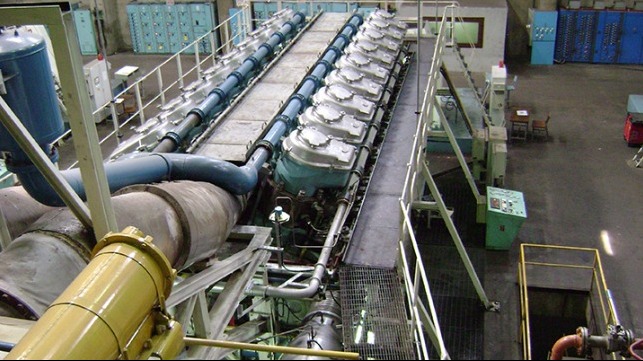Trafigura to Sponsor Development of MAN's Ammonia Engine

Energy trader the Trafigura Group is continuing to a leadership role in seeking to drive sustainable solution and green initiatives for the shipping and energy sectors announcing that it will co-sponsor MAN Energy Solutions ammonia-fueled engine development project.
As one of the world’s leading commodity trading companies, Trafigura is one of the largest customers of the tanker sector and as such has been pursuing carbon offset and neutrality programs as well as becoming an advocate of the carbon levy on heavy fuel oil. In March, Trafigura joined with a collation of shipping companies, including CMB, DFDS, Torvald Klaveness, and Viking, as well as Lloyd’s Register, Hydrogen Europe and the NGO Transport & Environment, to express their support for the EU’s green initiatives on maritime fuels. Specifically, they were calling for initiatives to support the development of hydrogen and ammonia as future marine fuels.
“Shipping faces a significant challenge in reducing its emissions, while at the same time the threat of climate change requires urgent action to decarbonize,” said Jose Maria Larocca, Executive Director and Co-Head of Oil Trading for Trafigura. “Developing engines and the supporting infrastructure to provide the industry with the ability to adopt carbon-neutral and carbon-free fuels is key to establishing a greener shipping industry in the near future.”
By co-sponsoring the MAN Energy Solutions' two-stroke ammonia-fueled engine, Trafigura said it is committing to cross-industry collaboration to bring forward the urgently needed technologies for the maritime energy transition. Trafigura said that it is investing in renewable energy technologies by co-sponsoring the development of MAN Energy Solutions ammonia-fueled engine for maritime vessels.
MAN recently announced that it would be launching new partnership initiatives designed to transfer technology in support of the development of possibly the first dual-fuel, medium-speed engine capable of running on diesel fuel and ammonia. Previously the company had said that the fuel-flexible, two-stroke ammonia engine is expected to be commercially available for large-scale ocean-going ships by 2024. They are also developing a retrofit package to make existing maritime vessels capable of running on ammonia by 2025.
“The final goal for two-stroke engines is to run them entirely on carbon-neutral and carbon-free fuels and we welcome Trafigura’s support for this key decarbonization technology,” said Dr. Uwe Lauber, CEO of MAN Energy Solutions. “The interest from shipping companies – and indeed from all links in the entire marine supply chain – in new fuel-technologies currently has great momentum, however, the move to green engines also depends on economic realities. No shipping company can risk having its fleet stranded during this transition, which is why we offer flexible solutions that will allow shipping to adapt to the availability of carbon-neutral fuels in the market.”

that matters most
Get the latest maritime news delivered to your inbox daily.
MAN is highlighting the agreement with Trafigura as an example of the new types of partnership within the maritime sector require to meet the challenges for a transition to sustainable energy solutions. MAN says it is fully committed to the development of technology that exploits alternative, clean fuels and welcomes the contribution of partners in achieving the goals.
Trafigura said that it will also continue to sponsor and invest in other, promising decarbonization fuels and technologies that can help us towards reducing our own – and the industry’s – fuel emissions over time. Rasmus Bach Nielsen, Global Head of Fuel Decarbonization for Trafigura also used the opportunity to again voice their support for taxing fuel users to finance the development projects. “Building on independent in-depth research and with the knowledge that we currently have, we believe that hydrogen-based fuels will ultimately be the shipping fuels of the future. To get there we urgently need a significant IMO-led global carbon levy on marine fuels to encourage and incentivize the use of low and zero-carbon fuels by making these cost neutral compared to the higher emitting fuels that we know of today,” said Nielsen.
